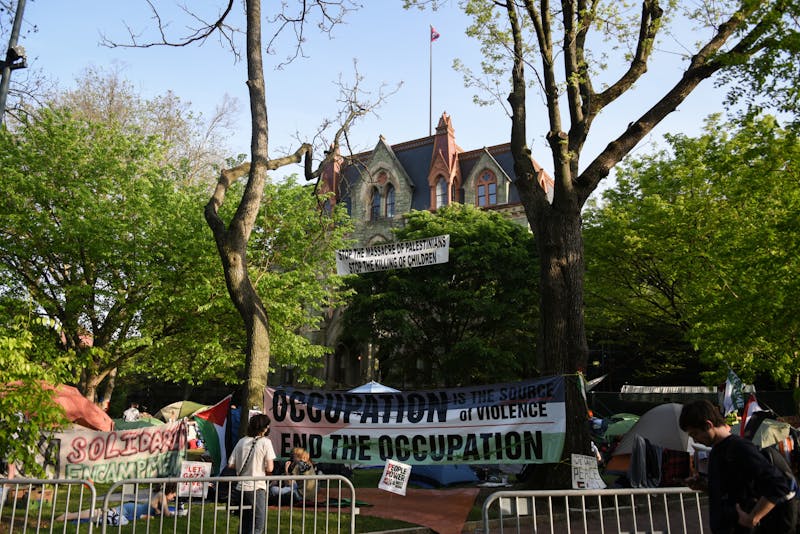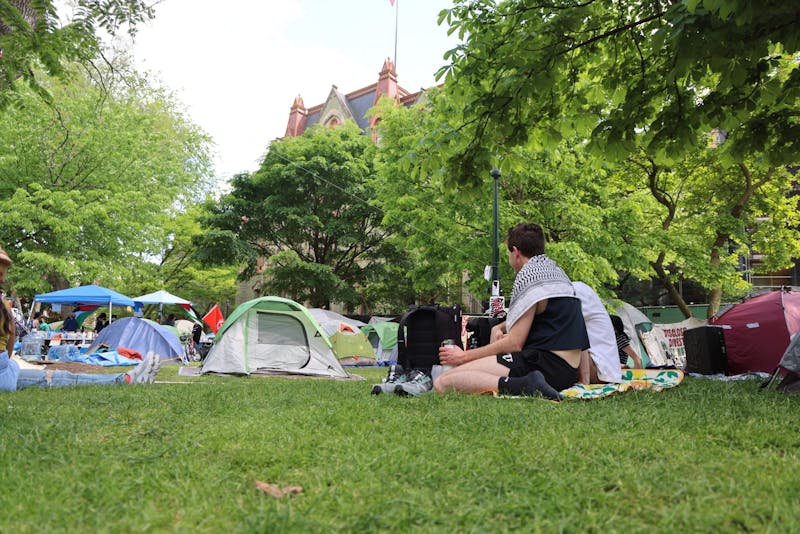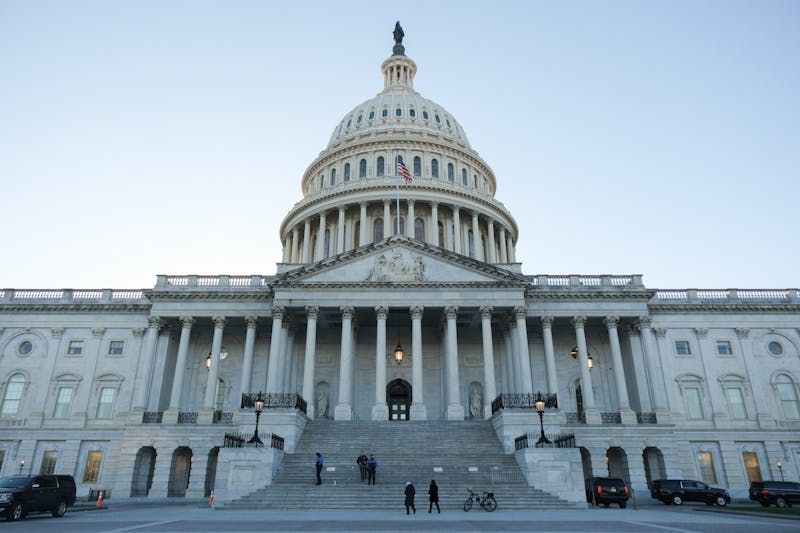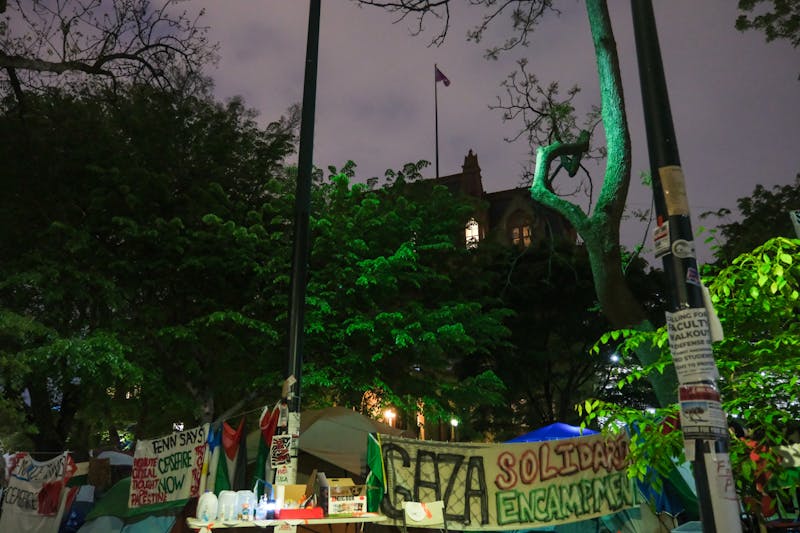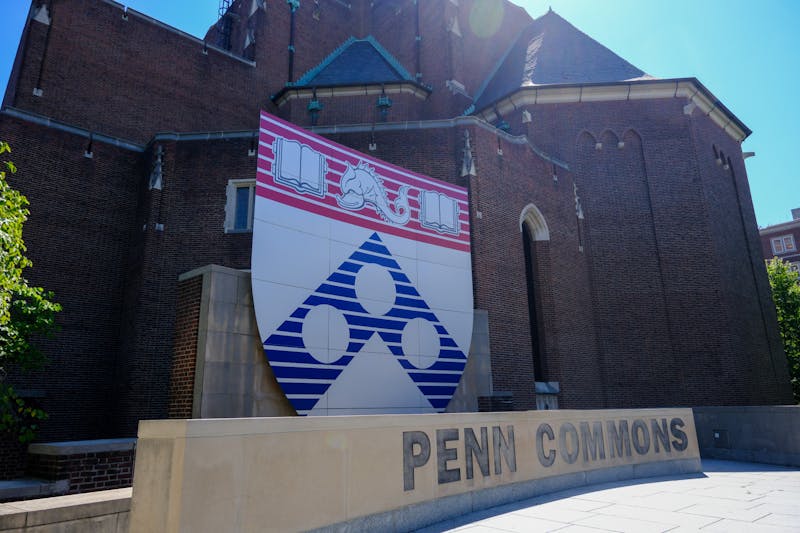
Penn released new guidelines on media coverage of campus events as a part of their Temporary Standards and Procedures for Campus Events and Demonstrations.
Credit: Nathaniel BabittsPenn's recently announced temporary open expression guidelines include a provision relating to media access, which has received stark criticism from several nonprofit organizations.
The policy — released on June 6 as part of the new Temporary Standards and Procedures for Campus Events and Demonstrations — states that “[n]ews media are required to produce credentials when requested by University Communications and may be asked to limit filming to specific areas of campus, especially during demonstrations, to allow Penn’s Division of Public Safety to maintain campus security.”
A University spokesperson wrote to The Daily Pennsylvanian that the University is “confident that our open expression guidelines are lawful and appropriate.”
Solomon Worlds, a staff attorney with the American Civil Liberties Union of Pennsylvania — speaking on behalf of the organization — referred to the media policy as a “blatant violation of the First Amendment.”
Worlds said that while there is no problem with University Communications staff requesting press credentials, it is different if Penn Police officers are asking members of the media to stop recording.
“If anyone, you as press or you as an individual are recording police officers [in the context] of their job … on the streets, in the world, then you have the First Amendment right to continue to record it,” they told the DP.
Anne Tamburro, who serves as the student press counsel for the Foundation for Individual Rights and Expression, said that the language of the policy “raises some concerns.”
“Requiring students to show credentials could create a situation where administrators or security have the discretion to determine which credentials are valid and possibly discriminate against certain viewpoints/news outlets,” Tamburro wrote in a statement to the DP.
She also added that the policy could be strengthened by specifying locations where University administrators can restrict filming.
“The policy should more specifically ban filming in particularized areas, rather than just generally saying that the administrators have blanket discretion to ask journalists or others not to film,” Tamburro wrote.
Mike Hiestand, senior legal counsel at the Student Press Law Center, wrote to the DP that universities must strike a balance between “efforts to maintain campus safety” and “respect[ing] that the press also has a constitutionally protected job to do.”
“It's a sometimes complicated balance, but it's not optional,” Hiestand wrote. “These regulations seem way too wishy-washy and lopsided in tipping that balance in favor of campus authorities.”
The revised guidelines come after increased protests and tension on campus, including an encampment on College Green that lasted 16 days. The new guidelines explicitly ban encampments.
The DP's analysis of the temporary open expression guidelines found that they increase the powers of Penn’s vice provost for University Life, redefine events on campus as inherently private to the University community, and specifically prohibit many of the tactics used by demonstrators on campus in recent years.
In the email announcing the new guidelines, administrators stated that they are a response to requests throughout the year from members of the Penn community for University leadership to clarify and update their guidance and policies related to campus events and demonstrations. The message emphasizes that the request for “increased clarity” also was a “priority recommendation” in the final reports from both the University Task Force on Antisemitism and the Presidential Commission on Countering Hate and Building Community.
The Daily Pennsylvanian is an independent, student-run newspaper. Please consider making a donation to support the coverage that shapes the University. Your generosity ensures a future of strong journalism at Penn.
Donate




